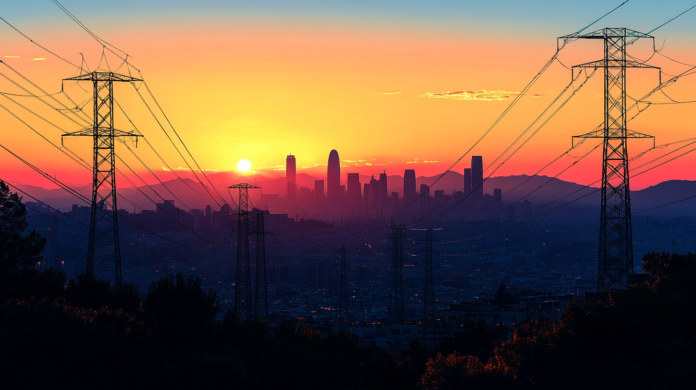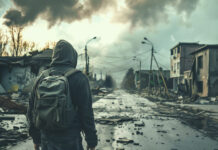If you are unaware of the recent power outage on the Iberian Peninsula, which turned out to be the largest grid-down event of the digital era, read this post.
What we can Learn from the Power Outage
One obvious lesson learned is that when someone warns you of a weakness, you should listen and find a way to compensate. In this case, engineers and people with experience managing the grid told politicians how overreliance on renewable power, including solar and wind, would weaken the power grid and reduce reliability. Since solar and wind power can change in the blink of an eye, the grid can lose power just as fast, and that appears to be what happened in Spain. The repercussions of losing two solar power production facilities within two minutes not only brought down the electrical grid in Spain, Portugal, and part of France, it almost knocked out the grid across all of Europe.
This is not to say renewable power is bad, only that over-reliance on it has negative side effects. If there were effective battery or other energy storage facilities that could produce megawatts of power in the same blink of an eye, the grid could compensate, but that technology is not yet ready nor cost effective.
European politicians were gung ho on renewable energy and refused to acknowledge a problem might exist. Don’t make the same mistake. If you have a weakness, acknowledge it and plan how to overcome it. For example, if your location is a problem, plan to bug out early. If you travel frequently, always get a rental car, keep the gas tank full, and carry a get-home bag you can leave in the trunk. If you live in an apartment and don’t have room to prep, find somewhere you can bug out and leave most of your preps there. You get the idea.
Cash is King
A shocking number of people were helpless when the electronic payment systems failed. Unable to pay with their phone, people had no way to buy food or water or to pay for a ride home. Lines at ATMs started immediately and lasted until they failed or ran out of cash.
Anyone who has read this blog for any length of time knows I consider it important to carry cash. I usually carry about $100 in my money clip and $40 in my wallet. I have extra cash hidden in my car and stashed in my EDC bag. Sounds like I would have been buying drinks, or at least water, for lots of people had I been in Spain.
Even if all you do is stash two $20 bills between your phone and your phone case, you will be better off than those who don’t.
Over Reliance on the Internet
Just a few days ago, someone posted on Reddit about thinking prepping was not worthwhile. They said, “It seems that we are so utterly dependent on electricity and the internet that if something big happens and they are gone (e.g. solar flare, nuclear accident, etc.), we are gone.”
This was news to me, because 1) people lived without the Internet 30 years ago, and only half the country had electricity 100 years ago. People have lived without these modern conveniences for 99.9% of recorded history. And 2) it’s the nukes that will kill you, not the lack of Internet.
But that post is a reminder that the younger generation cannot imagine living without the Internet. They probably don’t own a transistor radio and may not read hard-copy books. Furthermore, many may lack the ability to interact face-to-face with other people because their lives have been spent chatting via the screen rather than in person. Sad.
Of course, the Internet has replaced plain old telephone service. No one dials up anymore; they have a full-time connection wherever they go. Information, maps, reminders, and friendly advice from their AI buddy is all available via the Internet, using the phone as an interface. I expect many younger folks have never even been somewhere their phone has no service, which is what happens to me when I turn off the main road outside of town.
Lesson: Have an alternative method of communication and a backup of the information you store in the cloud or access via the Internet. How-to books you will need after the SHTF should be hard copy. Print out copies of your favorite recipes. Hang on to those owner’s manuals, even if you can download one online. Don’t put all your money in Crypto.
Store Shelves Empty Quickly
I saw multiple reports of people panic buying and clearing off store shelves. Not knowing how long the outage would last, those that had money bought up all sorts of stuff, including all of what one British ex pat called “loo roll.” A number of people went specifically to buy pet food.
The lesson here is to be prepared. Don’t expect to get your survival supplies at the last minute. And prep for your pets.
I have plans to do some last-minute shopping when the SHTF, if time allows. Top of my list is chicken feed. I know five local stores that sell it, and I will start at one and go on to the next until I have at least a dozen 50-pound bags. I am not against buying fresh vegetables, especially a big bag of onions and another of potatoes, and things like cheese and other dairy products, but it’s the chicken feed that is the most important. If the Internet is up, I’m also going to place orders on Walmart, Amazon.com and Sam’s Club, but I’m not going to count on them arriving. I’ll be able to survive just fine if they don’t.
Travel Independence
If you want to control your own destiny, you can’t rely on others for your transportation needs. You’ll note that while there were traffic jams, there were also plenty of cars out and about while the subway wasn’t running at all. Without working cell service or internet, no one could book an Uber.
Lessons: Choose to drive instead of taking mass transportation and keep your gas tank over half full as gas pumps require power to pump gas.
I know this isn’t always possible. I spent the first fourteen years of my working life depending on mass transit. At various times, I took trains, subways, and what was called an express bus. I lived in NYC, so I had no choice. Correction: I had a choice and I exercised it by moving somewhere else. After that, I drove to work. Even now, I often choose to drive instead of fly.
Don’t Panic
There are very few reports of people panicking or resorting to violence. In a way, this is reminiscent of how people reacted during the New York blackouts in 2003 and 1965. In contrast, the 1977 blackout saw mass looting, arson and other criminal activity. This was blamed on the poor economy at the time and an angry populace.
I guess you never know what will happen in this kind of scenario, so the lesson is to be prepared for the worst but hope for the best. Or, like others say, be polite, but have a plan to kill everyone in the room.
Not Enough Preppers
Most of the reporting we have seen is from the cities, in part because that is where the people are, but also because that is where the media is. Maybe the Spanish countryside is lined with preppers who survived the blackout without a peep. Or not. From what I have seen online, Spain is not a country known for its preppers.
Lesson: Prepping works. If you are prepared for a big emergency, small ones are easy and help you test your preps.
This isn’t your Father’s Electric Grid
While this occurred in Europe, we are at risk of similar failures here in the U.S., especially during temperature extremes. Our problems include not only reliance on potentially intermittent sources of green power, but insufficient generation capabilities thanks to closing coal and nuclear plants, an aging distribution system, and rising demand from EVs and data centers. Consider planning for power outages, if you have not yet done so. We are likely to see more of them.
This blackout is an example of a scenario where having a solar generator would have been a big help, assuming someone was at home to plug the refrigerator into it. Since it happened in daylight, you could use solar panels to recharge the generator while it was powering your fridge and freezer. Of course, gasoline powered generators also work well. They are noisier, but have lower up-front costs. As long as you have gasoline, you’ll have power. My advice is to get the biggest solar power system you can afford and use a fossil fuel generator to recharge its batteries when there isn’t sufficient sun to do so.
Final lesson: Even on a sunny day, the you-know-what can hit the fan. Don’t become complacent because you may not get a warning.







